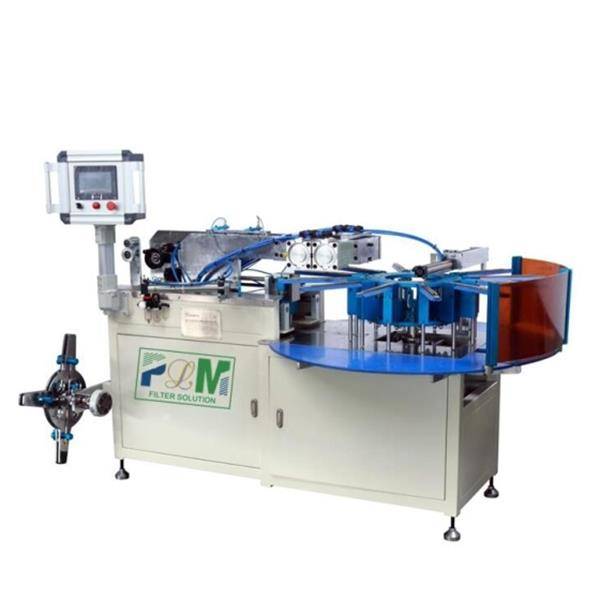Aug . 16, 2024 14:16 Back to list
HEPA Filtration Solutions for Pharmaceutical Industry Applications and Services
The Importance of HEPA Filters in Pharmaceutical Services
In the pharmaceutical industry, maintaining a sterile and contaminants-free environment is crucial to ensure product safety and efficacy. One of the key technologies employed to achieve this level of cleanliness is the High-Efficiency Particulate Air (HEPA) filter. These filters play a vital role in pharmaceutical services, particularly in areas such as cleanrooms, laboratories, and manufacturing facilities.
HEPA filters are designed to trap 99.97% of particles that are 0.3 microns in diameter. Their effectiveness in capturing airborne contaminants such as dust, pollen, mold spores, and bacteria makes them indispensable in the pharmaceutical sector. The necessity for high-quality air filtration stems not only from regulatory compliance but also from the imperative to protect sensitive products and processes from potential contamination.
Regulatory Compliance and Standards
Pharmaceutical companies are subject to stringent guidelines enforced by agencies such as the Food and Drug Administration (FDA) and the European Medicines Agency (EMA). These regulatory bodies require that facilities adhere to rigorous cleanliness standards to ensure that pharmaceutical products are safe for human consumption. HEPA filters are a critical component in achieving compliance with Good Manufacturing Practices (GMP) and other industry standards.
By utilizing HEPA filtration systems, companies can create controlled environments that reduce the risk of contamination. This is particularly important in the production of sterile products, such as injectable medications, where even the slightest contamination could lead to serious health risks for patients.
The Role of HEPA Filters in Cleanroom Environments
hepa filter for pharmaceuticals service

Cleanrooms are specialized environments where airborne particles, temperature, humidity, and pressure are controlled. HEPA filters are integral to the design and operation of cleanrooms in pharmaceutical facilities. They are used in conjunction with cleanroom suits, gloves, and other protective gear to minimize human-related contamination.
In a cleanroom setting, HEPA filters are often installed in the ceiling, with air being forced through them to create a controlled laminar flow. This setup not only filters out potentially harmful particulates but also ensures that the airflow in the room is uniform and continuous, further enhancing the cleanliness of the environment.
Maintenance and Monitoring
To ensure optimal performance, HEPA filters require regular maintenance and testing. Monitoring air quality and filter efficacy is essential to identify any potential issues before they lead to contamination. Many companies implement routine inspections and changes of filters to maintain their purification systems. Additionally, advanced particles monitoring systems can provide real-time data on the filter performance.
Regular training for staff on the importance of air quality and the role of HEPA filters also helps in maintaining the integrity of the pharmaceutical production process. Employees must understand the critical nature of air cleanliness and the operational procedures associated with cleanroom environments.
Conclusion
In conclusion, HEPA filters are a cornerstone of pharmaceutical services, providing essential air purification that supports product integrity and compliance with industry standards. Their ability to effectively trap ultra-fine particles makes them indispensable in the production of safe pharmaceutical products. As the industry continues to evolve and adapt to new challenges, the role of HEPA filters will undoubtedly remain central in safeguarding public health and ensuring the efficacy of pharmaceutical innovations. Investing in quality HEPA filtration systems and adhering to maintenance protocols will not only enhance productivity but also protect consumer safety in an ever-demanding marketplace.
-
Cheap PLJY109-500 Full-Auto HDAF Expanded Mesh Spiral Coiling Machine - High Efficiency & Quality Manufacturer
NewsJul.08,2025
-
Best PLHJ-6 Full-Auto Eco Filter Rotary Heat Plating Machine - High Efficiency & Eco-Friendly Solution
NewsJul.08,2025
-
High-Efficiency Paper Pleating Machine for Filters Trusted Filter Paper Pleating Machine Company
NewsJul.07,2025
-
High-Performance Oil Filter for Cadillac ATS – Reliable Engine Protection Solutions
NewsJul.07,2025
-
High Quality PU Glue for Filters – Reliable Filter Glue Supplier & Exporter Get PU Glue Quotes Now
NewsJul.07,2025
-
China PLJL-4 Seal Leakage Tester for Spin-On Filter - High-Precision Multi-Station Testing Solutions
NewsJul.06,2025
